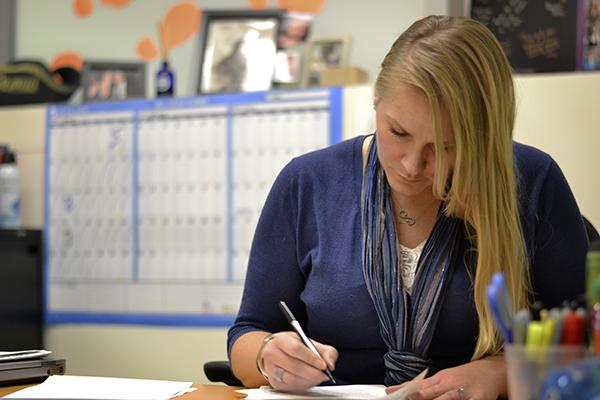
GW’s alcohol education office is focusing more on overall health, rather than just drugs and alcohol.
The Office of Health Promotion and Prevention Services has always reached out to student organizations, but this year the office has encouraged students to request health resources instead of just providing alcohol education, Associate Director Alexis Janda said. Since last academic year, HPPS has been restructuring its office to focus on determining GW’s unique overall health needs.
“We want to streamline the program and resource-request process for students, which we hope will encourage collaboration,” Janda said.
Janda said her office works as the “outreach arm” of the Colonial Health Center and meets weekly with staff in medical and Mental Health Services to organize more events “that relate to many areas of health and wellness.”
“We all work together to develop ideas for programs and initiatives while always soliciting ideas from students,” she said.
The office has “increased” its graduate student staff this year, Janda said. The graduate students help with one-to-one “brief intervention meetings” with students, complete administrative tasks and help run programs for the office, she said.
HPPS, formerly called the Center for Alcohol and other Drug Education, changed its name in 2014 to go along with its changing message, and moved to its current location in the Marvin Center. The office offers training to student organizations so that they can be certified to host events with alcohol.
Students who receive alcohol violations must participate in a mandatory alcohol education program with HPPS. Alcohol violations on campus dropped by half last year compared to the number from 2013.
Two years ago, the office reviewed the University’s alcohol policy and changed details, making event registration easier and reconsidering the “bring-your-own-beverage policy” for events where the organizers don’t provide all the alcohol for the event.
Cole Ettingoff, the deputy director of health and wellness for the Student Association, said HPPS is holding a meeting with student organizations next week for feedback and suggestions on Colonial Health Center accessibility. He said he has talked with staff and other student leaders about projects related to overall wellness – like eating well and sleeping enough.
“One of the things we really pushed them on was to make sure they were talking about more than alcohol,” he said.
Ettingoff said he has noticed the HPPS increasing its attempt to engage with students. He helped to organize Boo Bash, an HPPS Halloween party, which for the first time last fall was co-sponsored by student organizations. The event had a record turnout.
“A big portion of what I do is help connect them to student organizations, student leaders, students who have an interest in things related to health and wellness, to help them sort of reach out to the student body,” he said.
Kate Bell, the president of the Colonial Army, said she and other members of the organization sponsored the costume contest at this year’s Boo Bash. She said the group’s executive board walked around during the event to encourage students to post pictures of themselves and their friends on social media for the contest, tagging Colonial Army.
“The goal of Boo Bash was to promote a safe and fun event for students to participate in during Halloween weekend,” she said.







